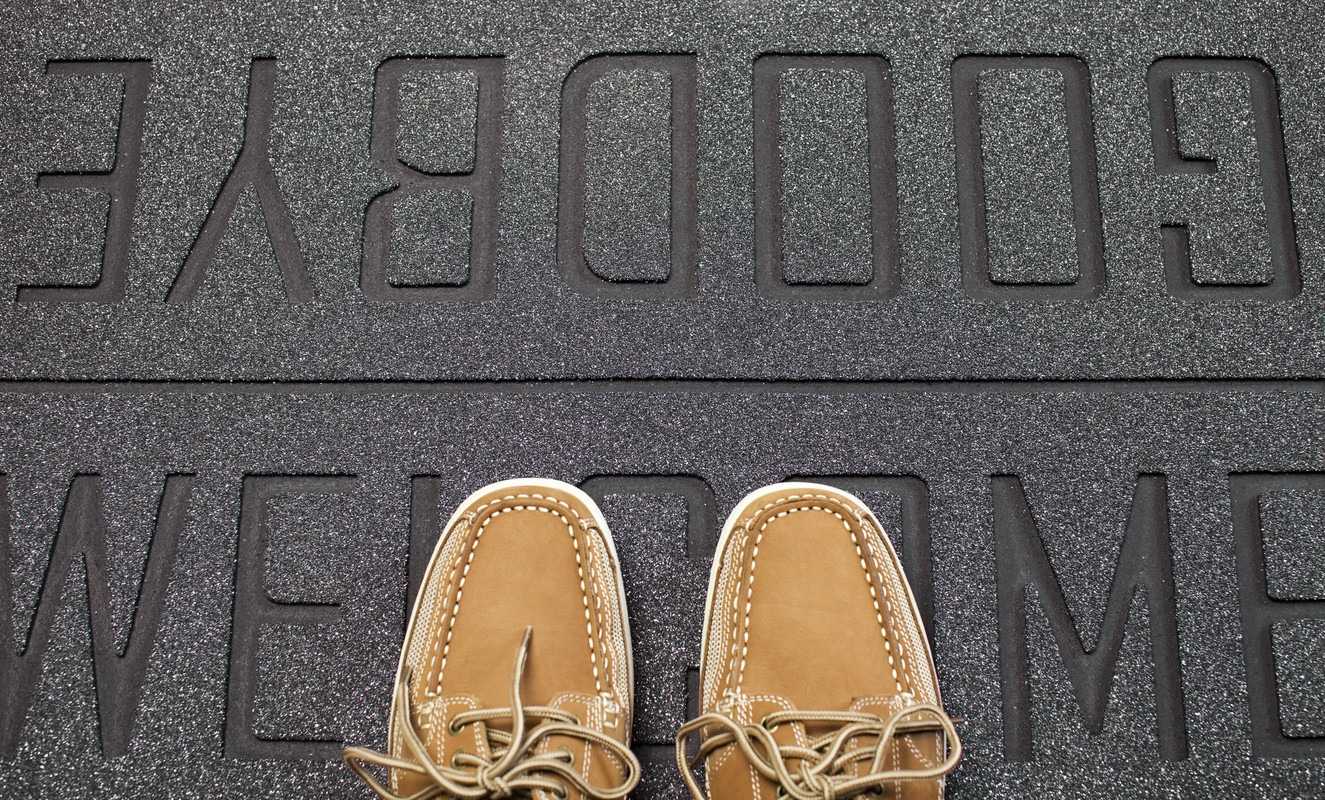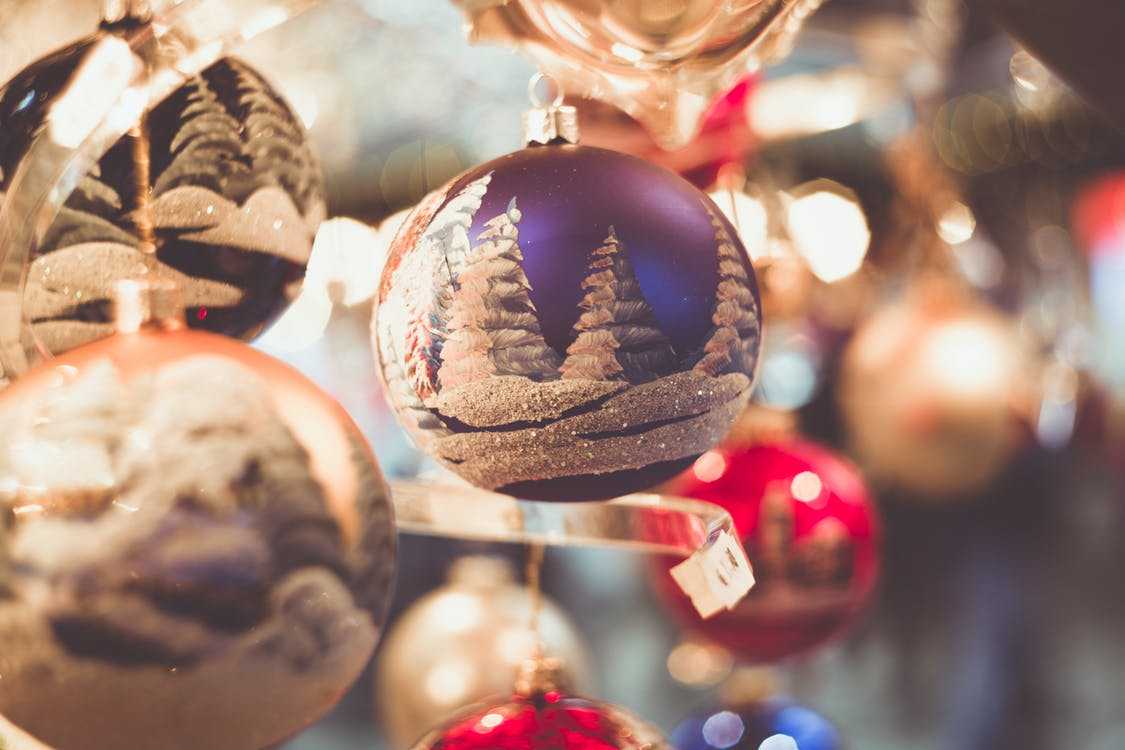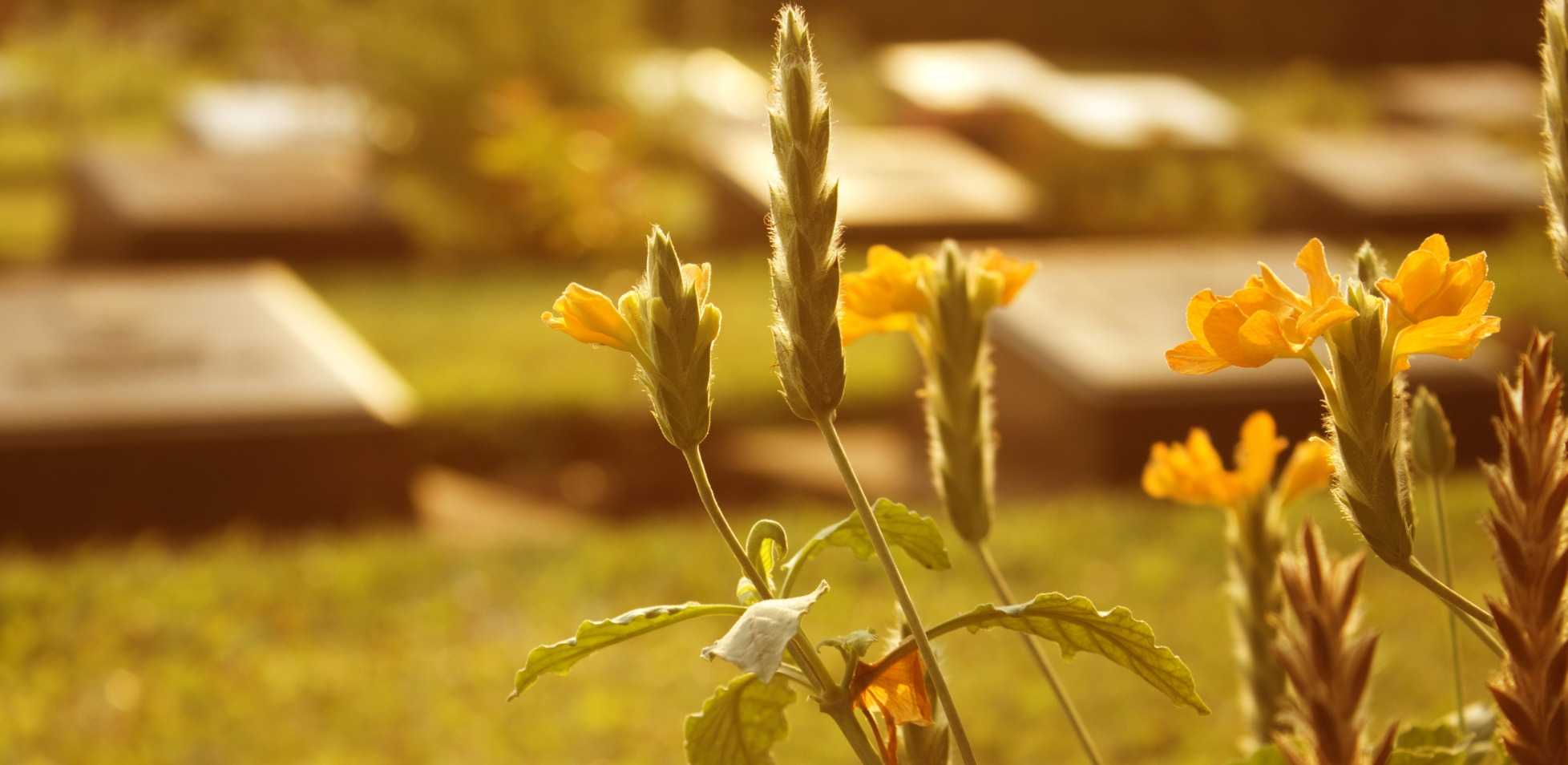InterNations LGBT Expats
Expat communities and resources are abundant in this day and age. But while you find information for almost every expat type, LGBT expats are often ignored and find it harder to meet other expats who are in the same situation. This is a place to share your experience and help other expats along the way!
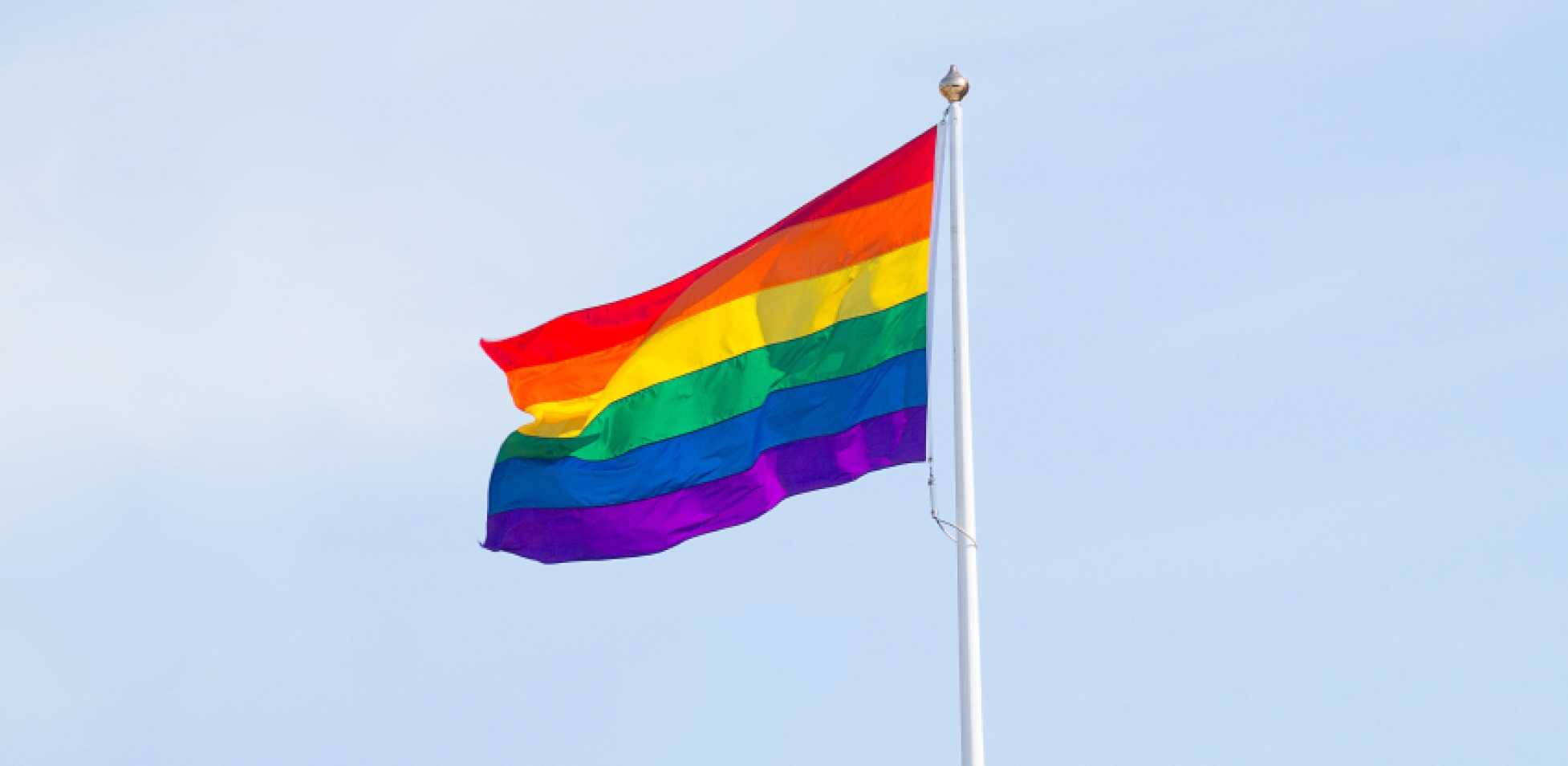
In addition to culture shock and the stressful moving process, lesbian, gay, bisexual, and transgender expats (and those in between) often face additional challenges when moving abroad. Be it the lack of a local LGBT community or the country’s legislation, forcing them back into the so-called closet.
InterNations Member Marcia experienced that step back when she moved to Mexico (more on this on the following page) and decided that it was time for LGBT expats to share their experiences and support each other.
We want to hear your stories about your host country: how is it different from home? How do you manage as an LGBT expat? What are your delights and challenges? And what else would you like to see here? Which resources would be useful? Share your experiences, hopes, dreams, difficulties, and resources which can help other LGBT expats along the way.
Marcia Diane: LGBT Expat Life in Mexico – How It all Started
It’s funny how isolation from your people will trigger old behaviors. Suddenly I found myself ‘going back into the closet’. And like in the old days, there were a lot of different skeletons in there: ageism, vulnerability, the default response of ‘fitting in’, why I even started avoiding talking about my decision of moving here permanently, right alongside widowhood. I suddenly felt overwhelming shame.
Sam Malone: Coming Out Abroad
On a summer’s day during my first week of work my company hosted a barbeque on the Isar, the river that runs through Munich. I regret to write that, unfortunately, we’ve arrived at a point where my tale diverts on its path from a journey of self-discovery and triumph to one…let’s say slightly less courageous.
Marcia Diane: Afterhours – From Boots to Burkas
Then there are the Doc Marten boots in your closet under the chinos and blue work shirt that you would never wear to your job. You could slick back your hair with gel turn your collar up and party on down the alley. Only if some local teens see you and notice that there is actually a girl under that outfit…well it could be dangerous.
Christina Lopes: From New York City to a Little Village in Portugal —What You Believe Becomes Your Reality
“You can be sure someone’s going to say something to you”, I thought so many times in the days before the wedding. I kept the fears bottled up and distracted myself with the many wedding guests that were arriving from all over the world. And just when I was expecting to be judged or ridiculed by my island community, life would teach me a lesson.
Marcia Diane: Not the Bar Type, Now What…
Expats are 2.5 times more likely to suffer anxiety and depression and are therefore at a higher risk for substance abuse. Add in our LGBT status while being a part of the expat community and it doesn’t take a math wizard to see what we are up against.
Expat communities and resources are abundant in this day and age. But while you find information for almost every expat type, LGBT expats are often ignored and find it harder to meet other expats who are in the same situation. This is a place to share your experience and help other expats along the way!
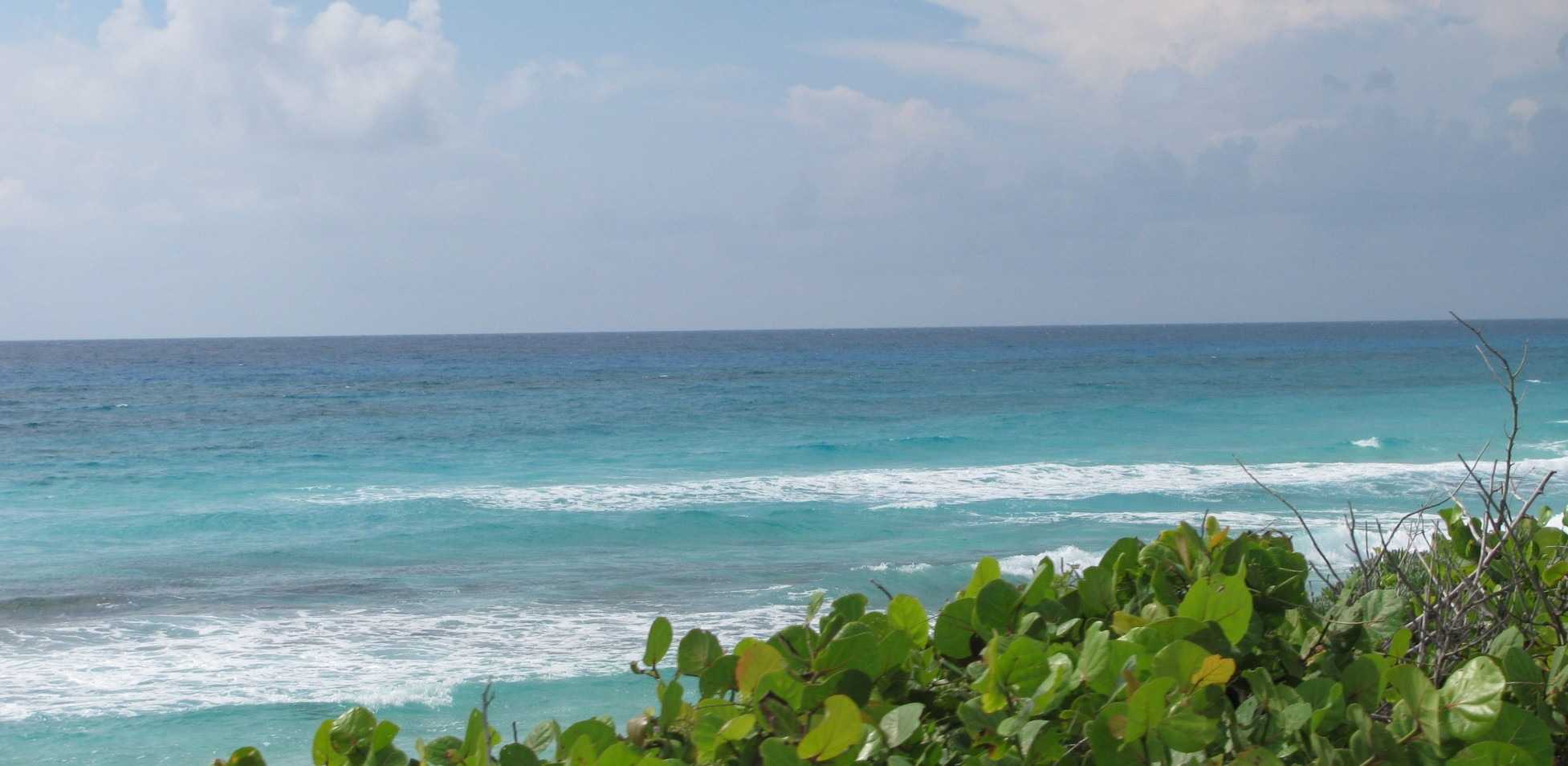
I think the best way to start this article is with a description of ‘how it happened’. I immigrated to Mexico a little over two years ago now, shortly after my wife of thirty one years died. We knew I would do this. It was a plan we had. Retired, on a limited budget, Mexico seemed a good choice.
And so it has been. I’d not change a moment. Oh don’t get me wrong, I’d get my spouse back in a hot minute were we able to do that kind of ‘after life’ magic. As I came out of deep mourning, I looked around and realized that I needed support for what I had done. What was I thinking, moving out of the country, leaving everything familiar; new language, new customs, new lifestyle.
It’s no news that complete change in environment and or life styles can be traumatic; coping mechanisms are challenged. I had made all the right connections; new comers meetings here in my little village, kayaking, swimming, biking, caring for my animals and helping them with the adjustments of suddenly ‘living by the sea’. Neither of my cats had ever seen a large body of water and I was amazed at how unfazed they were. We did have to keep an eye out for Osprey swooping down but apparently the fishing is so good here that fifteen pound cats just aren’t worth the effort.
Yet each evening I was confronted with two serious lacks in the folks I was meeting: most were vacationers, good timers, not expats and so could (and did) just drive away from any isolating issues back to the States. The second lack was nary a LGBT person in sight.
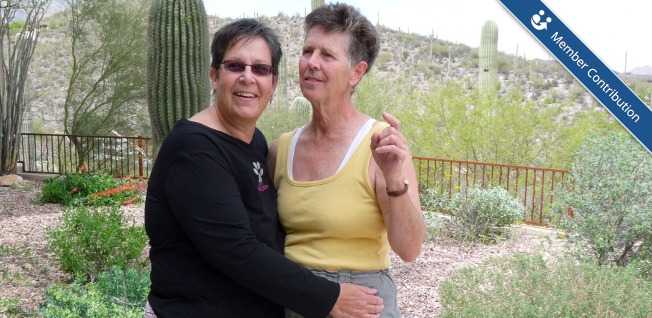
It’s funny how isolation from your people will trigger old behaviors. Suddenly I found myself ‘going back into the closet’. And like in the old days, there were a lot of different skeletons in there: ageism, vulnerability, the default response of ‘fitting in’, why I even started avoiding talking about my decision of moving here permanently, right alongside widowhood. In a word, I suddenly felt overwhelming shame.
Not pretty! So that’s when I began really searching for what was missing in my life, the life of an LGBT expat.
Online I found InterNations and knew I could connect there. The only problem being I lived about 2,014 km away from the nearest InterNations community, Monterrey, MX. Still, just reading about what our life is like, and yes we expats are a different creature however modern and bold we may be, soothed the savage beast within.
Imagine my delight and surprise when the very first LGBT article appeared in The Expat Magazine. Oh lovely, here at last the other part of me is met. We all know the number of challenges we must meet on a daily basis living abroad. Heck, that’s easily three quarters of why we go! Challenge, yes! Still, we also all know about that still small voice of loneliness that arrives late in the night. Of course us LGBT folk have no corner on that market; everybody gets lonely sometimes.
But, just as there are special challenges in living abroad, we too have additional challenges to face. So I thought, let’s talk about them!. I contacted the editorial office about starting a LGBT column or forum and got a very enthusiastic response. InterNations is all about being inclusive, and offering a connection and support.
Marcia Diane spends her time writing poetry, short stories, and mentoring others in journal writing groups and online writing groups in Puerto Viejo, MX. Oh and watching the sea rise and fall outside her front door. Before that she ran a therapeutic horse riding program in Petaluma, CA. Afterwards she became a Death Penalty Mitigation Specialist, and a bunch of more ordinary stuff in between. In her sixty nine years on planet earth she has moved thirty seven times and thus is she well suited to be a permanent migrant.
Expat communities and resources are abundant in this day and age. But while you find information for almost every expat type, LGBT expats are often ignored and find it harder to meet other expats who are in the same situation. This is a place to share your experience and help other expats along the way!
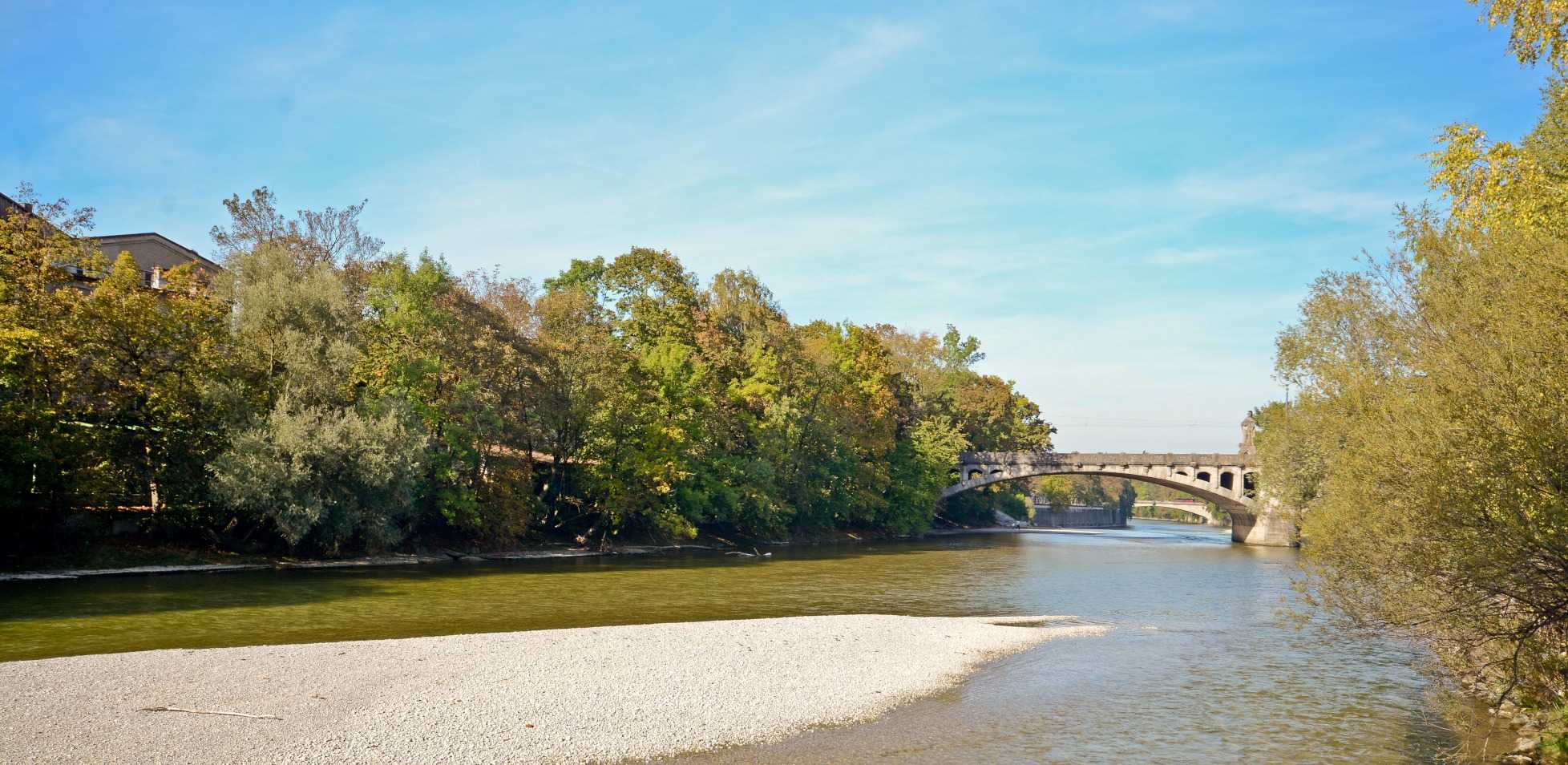
When I was a boy, I would fall in love with the people on passing trains. Wrapped up warm at four or five, I’d hold my mother’s hand on the platform as the trains we weren’t getting paused and swept by. The old people would smile and wave when I stared and announced my undying affection by pounding my hands to my lips and let kisses fly. And the teenage boys would giggle, and shift uncomfortably, averting the gaze of a boy unafraid. But I didn’t care, I was infatuated with the idea of love and the idea of being loved. Thoughts of the grand expressions and unadulterated adoration, so delicately formed from a diet of Disney, Hallmark cards, and ads for household products, had enveloped me. And anyway, I guess it prepared me for the coming years.
Being a gay expat puts you in a strange world, because it means coming out twice. They say you come out countless times, to the new people you meet, and the people you knew before but hadn’t seen after. But it’s not the same. Coming out the first time is like being dropped into a new world from a height. You stand up, disorientated and, with shredded sides, have to find your way in a place where you don’t know the rules, nor anyone to show you them. So you go to your first gaybar with (in my case) a straight girlfriend who is as excited as you are nervous. And beneath the faltering lights, artificial smoke, and sweeping glance of a genteel, 6 foot 2 drag queen, you might have found some sense of belonging in the surreal.
Moving and What it Means
But that was then and this is now, and this is where things get difficult. Because people are different, countries are different, and, despite the ubiquity of Lady Gaga, even the gay scene is different. The question then becomes, what advice can I give? What can I do? I suppose I can just tell you my story and hope you find something helpful in it.
I came to Germany after being out of the closet for a few years, at twenty-two. In doing so, I once more stood on the precipice above the world of the unknown, complicated further by the fact that I don’t actually speak German. I’m not going to lie and say I didn’t have reservations. Although people said German society was extremely open, there’s always a tiny echo of nervousness about how people will react, no matter how long you’re out.
But, then again, I also wasn’t interested in hiding who I was either. I had been out for a time, and I was comfortable with myself so I wasn’t going to climb back into the closet. Plus, I was also more apprehensive about hitting the bar scene solo. I didn’t exactly relish the prospect of trying to hit on attractive Germans using google translate above the pounding ABBA classics and amongst the rivers of beer and, ironically, straight liquor.
The Second Coming (Out)
On a summer’s day during my first week of work my company hosted a barbeque on the Isar, the river that runs through Munich. I regret to write that, unfortunately, we’ve arrived at a point where my tale diverts on its path from a journey of self-discovery and triumph to one…let’s say slightly less courageous. I should probably preface this by pointing out that I’m Irish and Irish people burn.
After a beer or two, the sun had managed to penetrate my carefully constructed fortress of shade and touched my left foot, thus resulting in the immediate evaporation of every liquid in my body. And so, I decided to walk into the river, fully clothed like a Christian at their rebirth. Emerging, the red Irishman from the Munich lagoon, I joined a conversation involving Tinder, sharing the screenshots I had taken of the more interesting profiles I had seen (Yes man holding a glass of wine between his toes and man dressed in a unitard with lion makeup, your pictures remain on my phone). And thus, I didn’t really become the gay Irish guy so much as the wet Irish guy. Which is good I suppose?
Either way, the point is, like when you come out the first time, life gets easier if you do when you’re abroad. My colleagues, who would become close friends, knew who I was and it naturally became easier to talk to them.
Sam Malone is an Irishman living in Munich, Germany. As a masters graduate in continental American literature, he is qualified in two things: being a nerd and reading books.
Expat communities and resources are abundant in this day and age. But while you find information for almost every expat type, LGBT expats are often ignored and find it harder to meet other expats who are in the same situation. This is a place to share your experience and help other expats along the way!
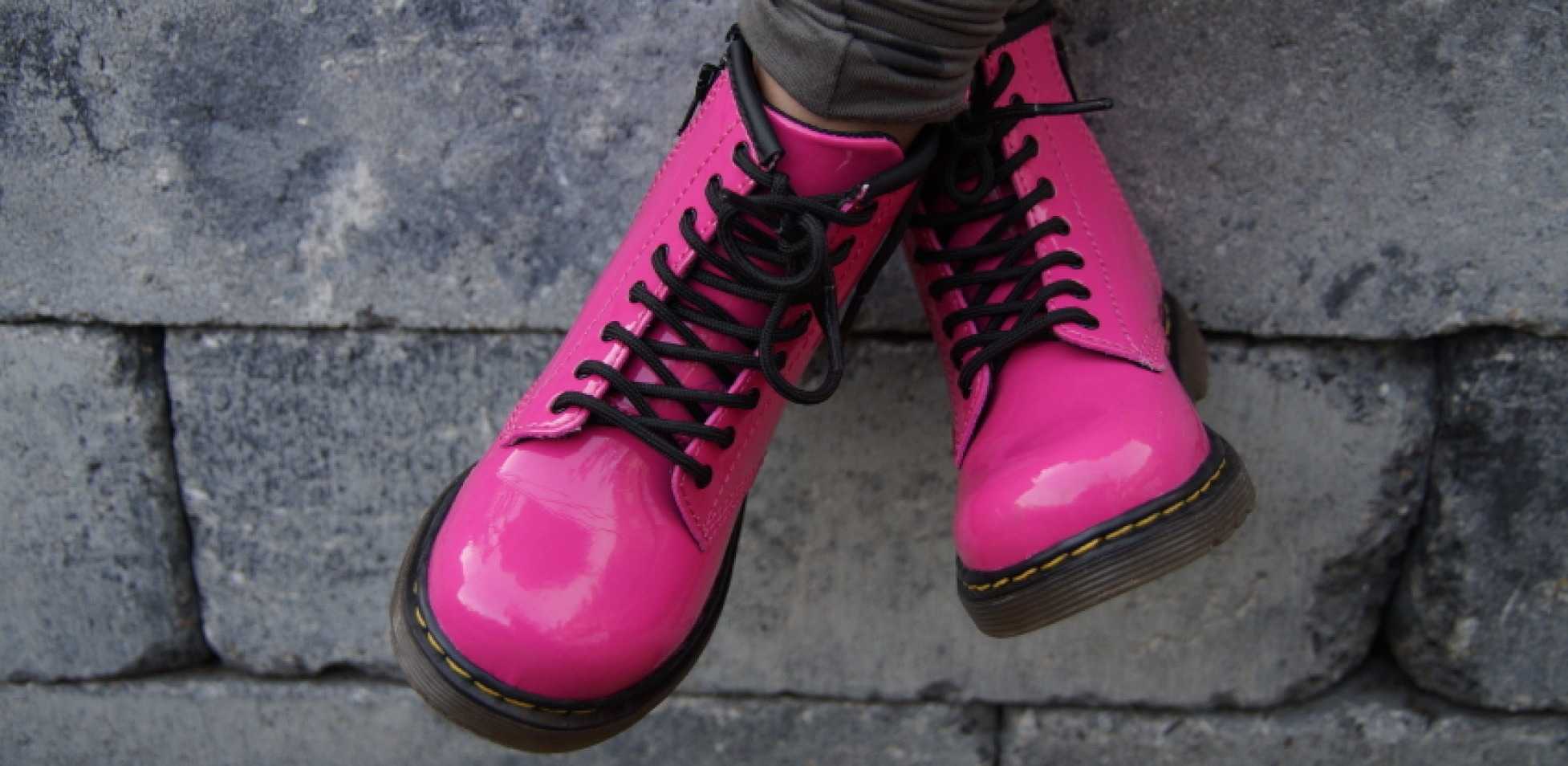
It’s Friday afternoon, you are going blind looking at your computer screen and can only think about getting out and away from work. You love your workmates, your job, and your new friends in your new country, but you really need to see your people tonight.
So how do you find them? How do you dress in this new country, how do you keep safe, or signal (as species do and have done since the very beginning of time) whether you are looking for a mate or simple companionship?
Dress to Impress
These days we are so well-accepted, so assimilated if you will, that often we may think there is something off about us when we don’t feel completely comfortable in a heterosexual environment. Why is it that hanging out with your heterosexual buds just feels, well, lonesome sometimes, like a tiger in a cage even though there is another tiger in the cage next door?
So maybe you resolve to go home, get that flaming pink shirt out of your drawer, shake it out, maybe even iron it and go on out. But what if you run into your work mates, which is highly likely in this small village where you work or the three bars in town that you know of. What will they think? I mean, it’s not like they don’t know you are gay but it’s not something that you talk about. It is part of the assimilation code that somehow it is considered rude to even mention it, just like you don’t talk about the fact that one of your buddies is in a wheel chair. It isolates you and makes you all the lonelier, and it isolates them, too…
Then there are the Doc Marten boots in your closet under the chinos and blue work shirt that you would never wear to your job. You could slick back your hair with gel turn your collar up and party on down the alley. Only if some local teens see you and notice that there is actually a girl under that outfit…well it could be dangerous.
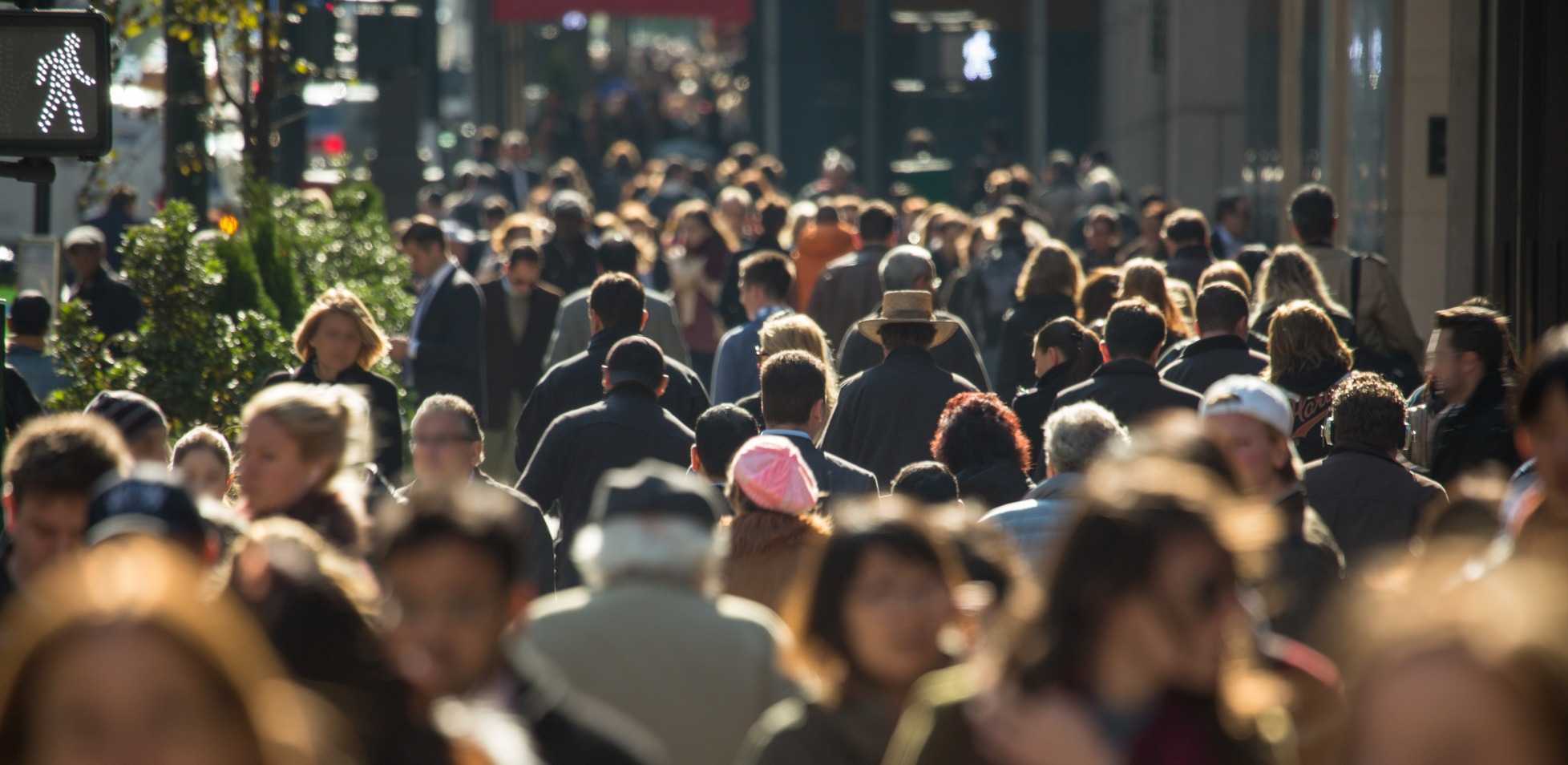
To Stand Out or to Blend In
We haven’t even touched yet on what to wear if you are unfortunate enough to live in a country where being gay is quite simply not OK, illegal, dangerous, or even life-threatening.
These are all the stressors gay people live with every day in addition to the ones most straight people have to manage (and that we manage as well): work, boss, kids, mate. Speaking of which: oh my, the stress on a partnership or marriage if you are together in your new country but neither of you are allowed to go about and demonstrate just the most casual affection for one another. It is even worse if you are gone all day and your partner is at home alone or making their way (incognito as well) through their daily life.
Well, we can talk about this here and we can break the isolation. Share your stories, help your fellow gays, tell each other how you manage, cope, thrive and survive.
Let us hear your stories!
Marcia Diane spends her time writing poetry, short stories, and mentoring others in journal writing groups and online writing groups in Puerto Viejo, MX. Oh and watching the sea rise and fall outside her front door. Before that she ran a therapeutic horse riding program in Petaluma, CA. Afterwards she became a Death Penalty Mitigation Specialist, and a bunch of more ordinary stuff in between. In her sixty nine years on planet earth she has moved thirty seven times and thus is she well suited to be a permanent migrant.
Expat communities and resources are abundant in this day and age. But while you find information for almost every expat type, LGBT expats are often ignored and find it harder to meet other expats who are in the same situation. This is a place to share your experience and help other expats along the way!
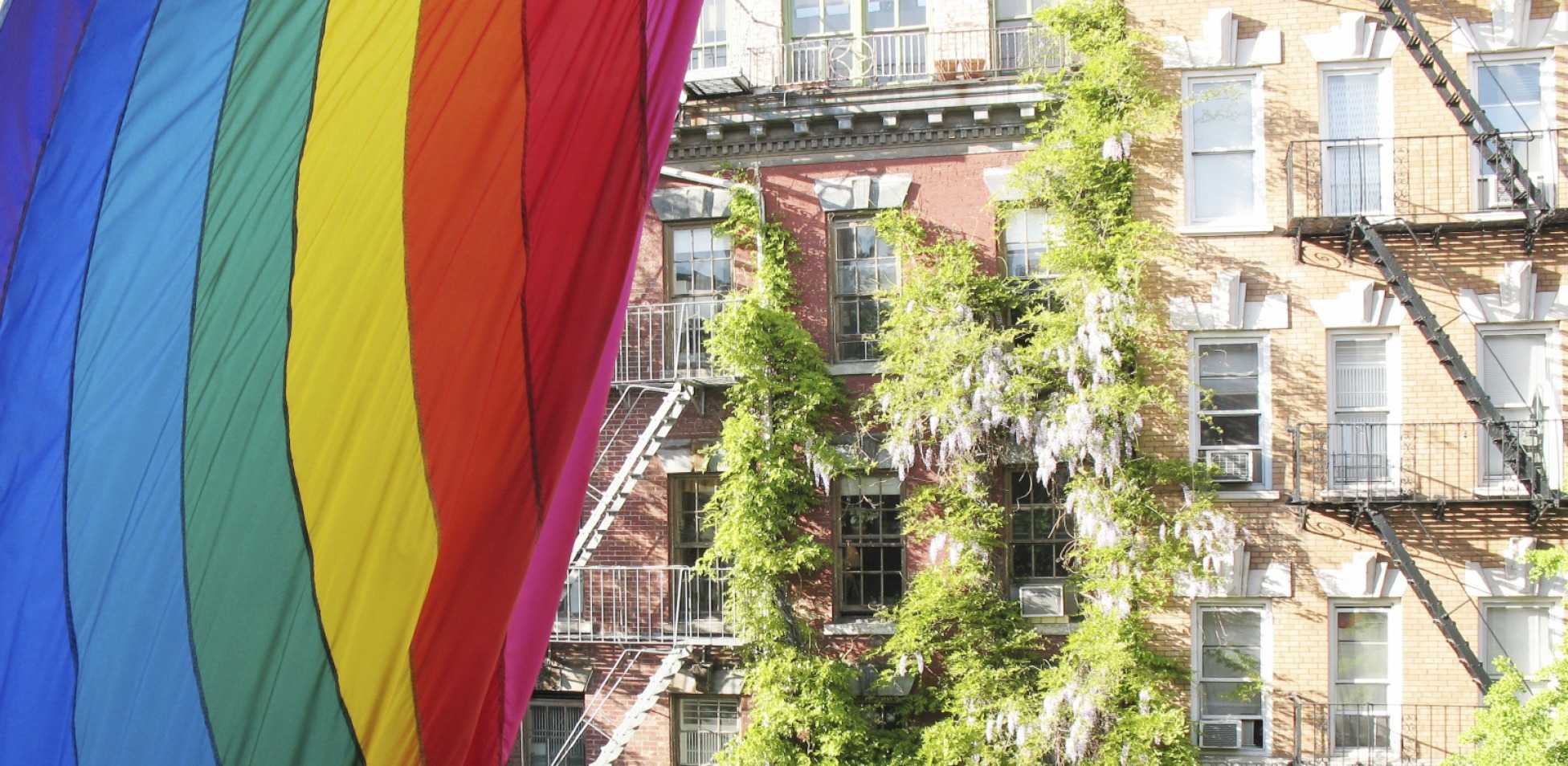
New York City. 2009. I had just started dating the woman that would become my wife two years later. She was only my second relationship with a woman and I was still struggling with the transition. For years, I had tried to sleep my way into heterosexuality. Obviously, that didn’t work. It was the only clever plan my mind could conceive of in order to make me “fit in” more. I was already so different in other areas of my life that being gay would only make me stand out even more. And at this point, I didn’t want to stand out. I wanted to disappear into the crowds walking around Manhattan. I was at least thankful that during these times of inner turmoil, I lived smack in the middle of the Big Apple. You really couldn’t be in a more open, liberal place. At least I wasn’t in a conservative town, where I could be ridiculed or bothered.
The Man on the Stoop
And that’s when I was humiliated and screamed at in the middle of a New York City street.
I was walking down a busy street with my new girlfriend, holding hands. We were happy and giggling about something silly. I looked ahead and saw a man sitting on a stoop, in front of a beautiful brownstone. He caught my attention because I could sense his energy changing as we approach. He became irritated, angry. I felt my grip tighten a little, as I was holding my girlfriend’s hand. I knew trouble was coming.
As we approached, he began to talk about the Bible and then he started shouting at us. “Jesus will send you to Hell!” We walked by and thankfully he didn’t follow us or show signs of physical aggression, but the screaming continued as we walked down the street. “You are abominations!” In that moment I felt a strong urge to let go of my girlfriend’s hand but resisted it. Everyone on the street was now looking in our direction. I felt so utterly humiliated. And sad. A deep sadness took over.
My girlfriend smiled it off and didn’t seem too bothered by the encounter. She was more secure in her sexuality than I was at this point. I was shaking. And then…angry. Here I was, living in the middle of one of the most open-minded places on earth. If I could get screamed at or accosted here, then it could happen anywhere. I felt a deep fear at that realization. And I changed my behavior on account of it.
Suddenly, I didn’t like holding my girlfriend’s hand when we were in public. And when she insisted on any public displays of affection, I made sure to constantly look around for men sitting on stoops. I don’t think she ever noticed how much that single event rattled me. And at this point in my life, I wasn’t one to talk about my deep fears. I was a concrete wall.
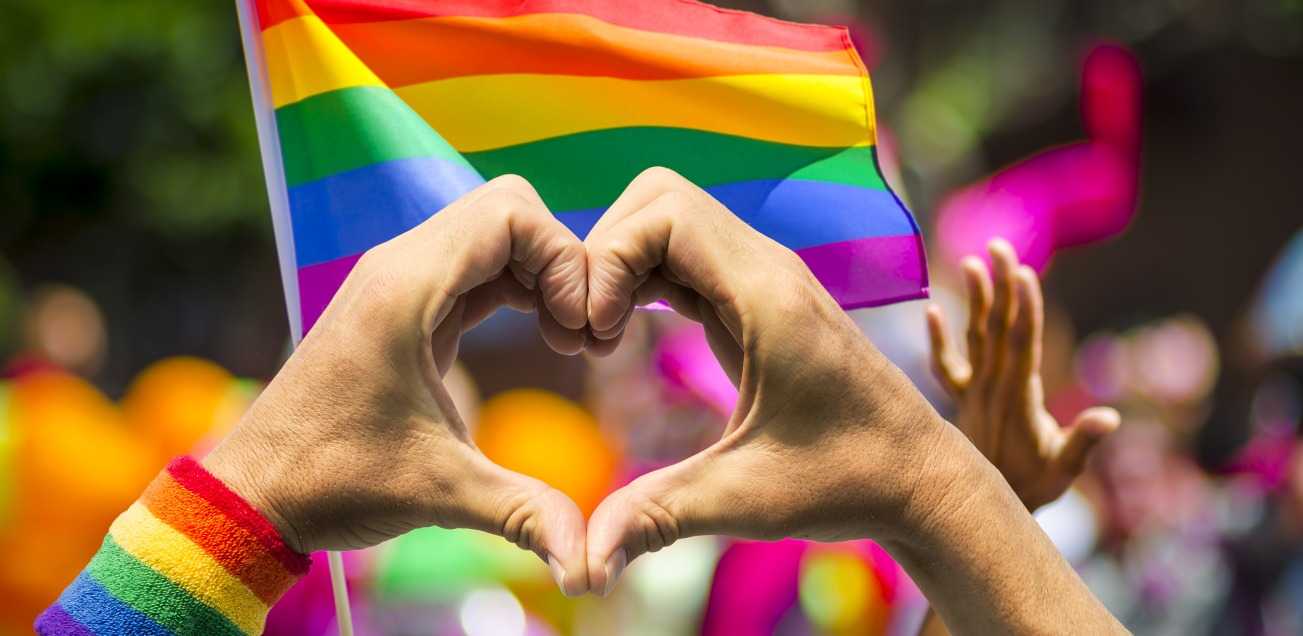
Two Years Later: a Wedding and a Surprise
Two years later, I was standing on a balcony overlooking the breathtaking Northern Atlantic. I was holding my beloved’s hand and repeating my marriage vows to her. I was on the Azores Islands, in Portugal. This was the birthplace of my parents and the place I called “home”. Enough had changed within for me to even consider this decision: getting married to a woman in a small, traditional Catholic society. We were only the second same-sex couple to get married on the island, after Portugal had passed a same-sex marriage bill. I was happy to be celebrating my wedding in such a gorgeous place but I was also scared. I was afraid of men sitting on stoops.
“You can be sure someone’s going to say something to you”, I thought so many times in the days before the wedding. I kept the fears bottled up and distracted myself with the many wedding guests that were arriving from all over the world.
And just when I was expecting to be judged or ridiculed by my island community, life would teach me a lesson:
People began to approach me on the street to congratulate me on my wedding. They wished me the best. Neighbors and locals brought food to help feed all the wedding guests. Every day I would awake to gifts in the kitchen: fresh eggs, vegetables from the garden, fresh bread, island cheese. I was overwhelmed with joy but was also keenly aware of what life was showing me.
The truth is, when you live in accordance with your essence, your reality begins to mold itself to that essence. In other words, what you believe becomes your reality.
From that moment on, I never again worried about men on stoops. No matter where life took me, I would live my inner truth with joy, freedom and openness.
Inner Truth and External Reality
Will I ever encounter a man on a stoop again? Maybe. But it doesn’t matter. Now that I know who I am and shine that light in all directions, nothing can rattle me.
Coincidently (or not), since I began to live my inner truth openly, my external reality mirrors that truth. I went from Manhattan to a small village in the Sintra National Forest, north of Lisbon. And I’m more open here than I was in the Big Apple. Sometimes, people are surprised when I tell them I’m gay. Yet surprise is followed by openness and a welcoming embrace.
In the end, perhaps this is part of my life purpose too: to show those around me a different way of life. To show them diversity and to love everyone— no matter where they are on their evolutionary path.
Christina Lopes is an energy healer, spiritual teacher/life coach, and published author. Her road through life has taken her to places of wonder, both without and within. One of her main lessons in life is this: “Simply BE and everything else follows.” Christina currently shines her Being in Sintra, Portugal. But she loves to travel the word and connect with the light in others.
Expat communities and resources are abundant in this day and age. But while you find information for almost every expat type, LGBT expats are often ignored and find it harder to meet other expats who are in the same situation. This is a place to share your experience and help other expats along the way!

As if we didn’t have enough challenges to face, being expats, these challenges are increased, specifically by isolation from “our people”. Here at InterNations, we are working together to help each other cope with that isolation.
In this article we’ll take a look at how substance abuse can further complicate the challenges before us as expat LGBT folks.
First off, not-drinking is not only a challenge for those expats who struggle with substance abuse. Maybe you simply don’t care to drink (or use drugs) but that might quickly put you at a huge disadvantage in your work environment. It’s double jeopardy, you might say.
Many of you are expected to wine and dine with clients and new business partners and the pressure to go out ‘hopping’ the bar scene after work is just as high. Of course, LGBT expats who are trying to cope with substance abuse problems feel the pressure even more.
The question is, how can we navigate this, how can we live with this pressure and not end up turning to some form of destructive behavior?
The statistics are not comforting, folks. Expats are 2.5 times more likely to suffer anxiety and depression and are therefore at a higher risk for substance abuse. Add in our LGBT status while being a part of the expat community and it doesn’t take a math wizard to see what we are up against.
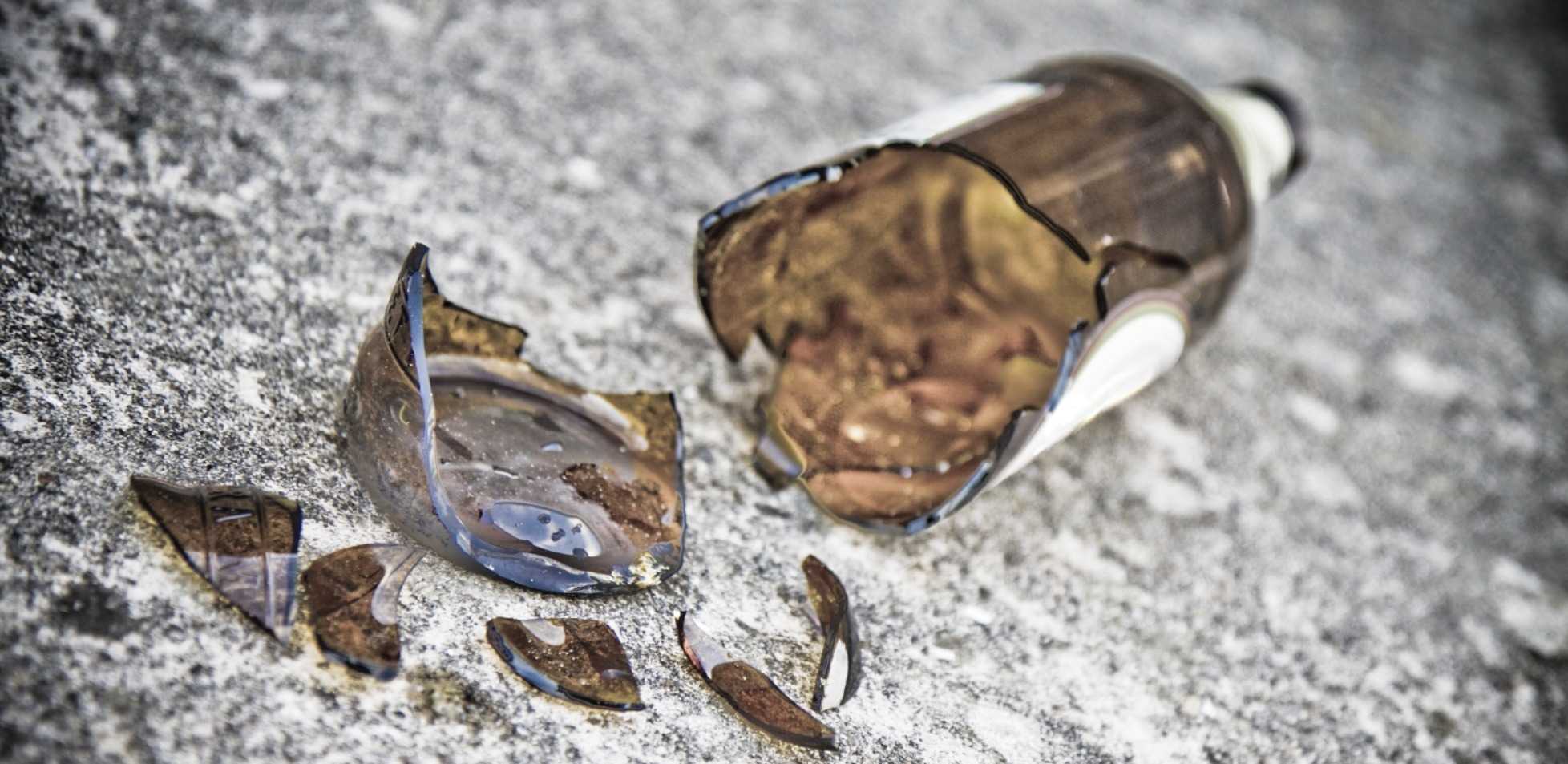
And did I mention the shame? Here again, we have all wrestled with that particular demon being LGBT. The acceptance of who we are being anywhere from maybe OK, and in a legal grey area or even downright morally and legally forbidden. Now let’s factor in any other shame-based issue, say mental health or substance abuse and, whew, what’s a person to do? Pretend, act as if, bury it, shove it away — all strategies to guarantee more isolation.Let’s take a look at the options available to us instead! LGBT expats dealing with a substance abuse problem should find support in the LGBT Online Intergroup: Alcoholics Anonymous.
Another way to recover, help your community, and get in touch with other people who might have had similar experiences as you is to become a youth group mentor, for instance. The IGLYO | International Lesbian, Gay, Bisexual, Transgender, Queer Youth and Student Organization is always looking for adult mentors.
The point of these articles is always to work hard to make resources available wherever you are, no matter the country or its laws.
We have and will continue to encourage you to reach out to us, to share your experiences and stories. Yet at the same time we understand that even that may not be safe enough. We are going to try to include several online support groups here for you and your loved ones.
Again, please continue to let us know what you need and are looking for. This month we have received over a dozen inquiries. We are very excited by this and consider ourselves well-launched! Yeah Expat LGBT!
Marcia Diane spends her time writing poetry, short stories, and mentoring others in journal writing groups and online writing groups in Puerto Viejo, MX. Oh and watching the sea rise and fall outside her front door. Before that she ran a therapeutic horse riding program in Petaluma, CA. Afterwards she became a Death Penalty Mitigation Specialist, and a bunch of more ordinary stuff in between. In her sixty nine years on planet earth she has moved thirty seven times and thus is she well suited to be a permanent migrant.
Expat communities and resources are abundant in this day and age. But while you find information for almost every expat type, LGBT expats are often ignored and find it harder to meet other expats who are in the same situation. This is a place to share your experience and help other expats along the way!

I don’t remember how or when it all began, but I spent many a day and night in my bedroom calculating routes of escape just in case my dad’s violence spilled over onto me. Sometimes it was an argument with shouting, then periods of silence and separation. The violence was mainly directed toward my mom and my older brother and rarely, if ever, towards me but I still felt threatened and vulnerable. My brother, who was four years older than me, was not at home for most of the day as he went to school, played sports or worked at the local bowling alley as a pin boy. My father imposed curfews on him and locked the door from the inside while waiting nightly for his arrival. My brother would be confronted verbally and sometimes physically if not home on time. My mother, from what I was told, would defy my father’s demands by unlocking the door and /or letting my brother into the house against his orders. This produced an argument.
Meeting Expectations
On one occasion, I heard an argument, went to my parents’ room, and found my dad holding my mother in an arm lock face down on their bed. There was shouting and cries of anguish on behalf of my mother. I approached my dad requesting her release or I would call the police. He released her and I went to my room. That afternoon mother gathered me up and we exited the house walking about a half mile to a cluster of stores. My mother was concerned that my father was OK and she phoned him. Soon after the call we walked back home.
My mother always accused my dad of an external affair(s) and my dad was extremely jealous of my mother’s outward expressions of joyous social interaction, particularly at gatherings. My dad used body language and verbally degraded my mother. It seemed that she could never meet his expectations, achieve his high-imposed standards, act appropriately socially, or, according to him, behave in a non-flirtatious manner when with the opposite sex.
I remember feeling threatened at times and having extreme fear even at the point of shivering as if in a cold winter storm. This, I believe, was due to an overload of suppressed emotions caused by active and passive displays of disrespect and violence. I also seemingly portrayed myself as being oblivious to it all, i.e., as if the hostility and conflict was normal. I never felt guilt, or guilty, as if I had nothing to do with the dysfunctionality. Maybe this was because my parents tried to keep me separated from their adult lives.
They don’t think we know what’s going on, but we do!
My parents finally divorced after 25 years but stayed married until my brother and I left home. Holding the family together at all costs seemed to be part of the ‘family code of conduct’ established in the culture of the mid-twentieth century. Fathers were the family guardians and responsible for putting-a-roof-over-the families’ head as they had done throughout history. Women were to honor, respect, and obey their husbands. Children were to respect and do as their parents willed them. To violate this code, as my mother and brother seemed to do, was to justify being corrected or chastised by my father.
We were not the only family, that lived like this. My best friend was often beaten with a leather strap by his father. As a teenager, he swore he would never do that to his sons; later as an adult, he changed his mind to say that it was necessary sometimes.
As a young adult, I dealt with the family’s dysfunctional behavior by having migraines, periods of physical tremors, being socially withdrawn, underdeveloped, and sometimes over emotional, and, at times, by acting out or talking-back.
Here is an important statement from a brochure provided by the United Nations International Children’s Emergency Fund, UNICEF, by a nine-year-old girl in the UK: “Our parents fight a lot and we fear they might split up. They fight when we’re upstairs. They don’t think we know what’s going on, but we do.” Domestic violence remains a largely hidden problem that few countries, communities or families openly confront. Violence in the home is not limited by geography, ethnicity, or status; it is a global phenomenon. Domestic violence is a pattern of assaultive and coercive behaviors used by adults or adolescents against current or former intimate partners (an issue that also LGBT people struggle with a lot). It is important to note that domestic violence doesn’t just happen between adults but may involve adolescents too. If you think you, a family member or someone in your community is a victim of domestic violence, have a look at the International Directory of Domestic Violence Agencies which offers a list of abuse help agencies in every country in the world.
For me, it was as the nine-year-old from the UK noted: they don’t think we know what is going on but we do! I have Dyslexia with ADD, Attention Deficit Disorder, which was not known in the 1960’s. It was reflected in my inability to read or spell well. To compound matters, I was also left-handed. All were considered unacceptable and punishable offences. I coped by becoming ambidextrous, read by focusing on every syllable thus increasing my comprehension, and sought help through counseling as a young adult.
Rajmond Perry was born in the late 1940’s and has been married to a younger mutual-gendered partner for seven years. Rajmond is a dual citizen of the EU, Hungary and United States of America, and is currently living as a business owner in Estonia. His education includes a postgraduate degree and background in social sciences /services as well as public relations and marketing, and health sciences (both general medical and mental health). Rajmond has lived and worked in China, South Korea, the United States, and the European Union.
Expat communities and resources are abundant in this day and age. But while you find information for almost every expat type, LGBT expats are often ignored and find it harder to meet other expats who are in the same situation. This is a place to share your experience and help other expats along the way!
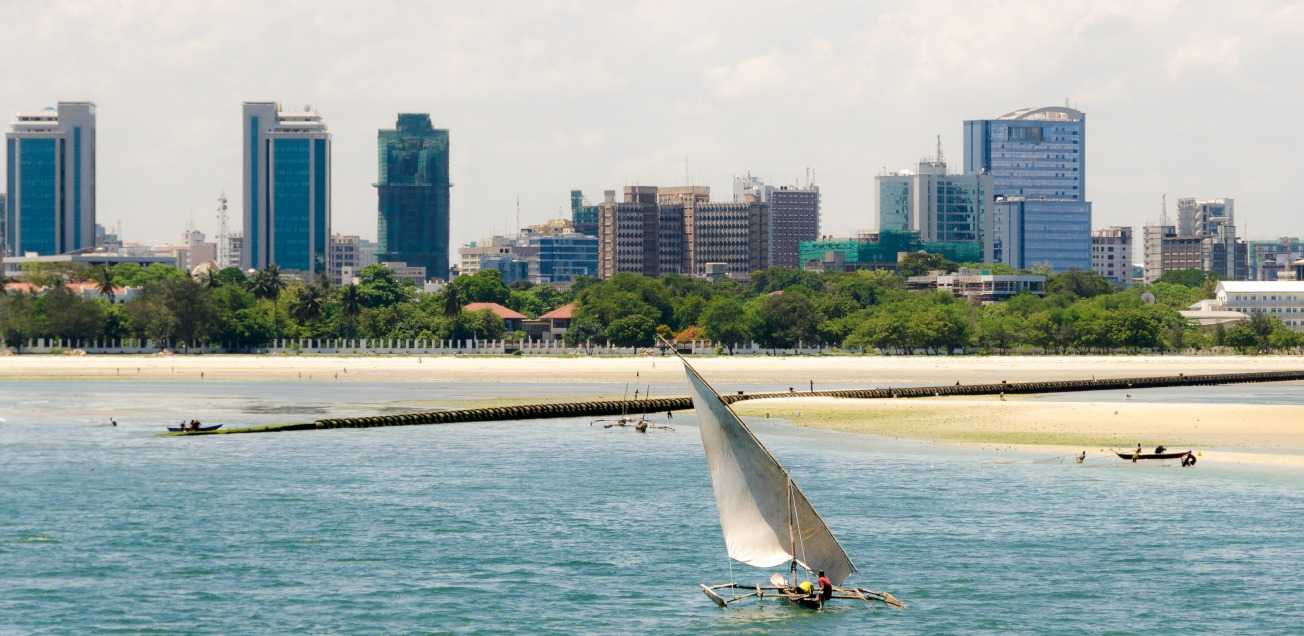
In a moment of gay naïveté, my partner and I moved with our four-year-old son to Tanzania in 2010. We shrugged, saying we’d just act like friends out in public and keep our inner lives private. Being slightly in the closet didn’t seem like a high price to pay to live in an exotic land. There were plenty of places we couldn’t walk around holding hands in our native USA, so why not live somewhere really culturally compelling?
We arrived and immediately started learning Kiswahili, cramming onto local buses, and generally just trying to keep our eyes open. We treasured every moment of perspective-shifting raw life waiting for us right outside our door. We were instantly in love with Dar es Salaam.
Going back into the Closet
With a few rare exceptions, we found any gay life to be completely hidden in Tanzania. We got the sense that Tanzanians would find the idea of a same-sex relationship strange, but largely benign. Their range of family systems allows for many sorts of “non-traditional” relationships, and the majority of people probably do not even realize that homosexuality is against the law.
This detail of legality, however, made coming out a risk we were not terribly eager to explore. We had only two Tanzanians spend a significant amount of time in our house, and one of them ended up filing a police report against us for being gay. I don’t think this was out of malice or homophobia exactly, but more from the desperation that comes with poverty. Her real intent was to extort money from us, and because there is room for that in the system, she succeeded. Regardless, it didn’t exactly feel welcoming.
Mama Ndogo
It turned out to be much more complex than not holding hands in public. Staying safely discreet meant being dishonest in nearly every basic interaction. I couldn’t truthfully answer the most basic questions: “What are you doing in Tanzania?” (Uh, I’m visiting my friend.) Or, “How long are you visiting?” (Uh, a long time.) “Do you have a family here or back where you came from?” (Uh, yes…?) “Are you married?” (Uh…) Imagine all this happening in my elementary Kiswahili. I sounded like an idiot.
Our son knew nothing of this. If people inquired to me or to my partner, “Is this your son?” whichever one of us was asked would say, “Yes.” We then made a mental note on which of us was understood to be the mom in that circle. In a pinch, the other could be called mama ndogo, a phrase that describes the non-biological mother in a family where the husband has more than one wife.
While there is neither a husband nor any polygamous practice in our relationship, at least we had an accepted linguistic fall-back for the “other mom.” Neither of us ever denied Finn as ours when asked in his presence, and by tiptoeing and answering vaguely we managed to keep peace.
Respect for Local Customs and the Price to Pay
In the developing nations where I like to travel, or the one in particular I called home, I donned a long skirt and a shirt that covered my shoulders, even in sweltering hot humidity. Outside the safe international crowds, I do not outwardly sport my tank top, nor my homosexuality. In equal measure, for equal reason. I do this out of cultural respect, in humble acknowledgment that I am on someone else’s soil.
I strongly believe in being mindful of local custom, because this diversity of ideas and experience is what makes travel so compelling to me. Expressing myself is not the aim when boarding a crowded bus and buying my vegetables at the local market in Dar, where a handful of vendors had come to know and expect me. My agenda was to learn, and this was how I compromised.
But the price of going back in the closet was higher than we anticipated. It meant weaving a web of lies that completely cut us off from any chance at genuine, meaningful interaction with local people. Which was part of the reason we’d come in the first place. And so we made plans to leave that land we otherwise loved, and my partner took a job in South Africa.
An Enriching Experience
A change in perspective and glimpse into another life is one of the greatest gifts, even when some of those traditions may include a lack of respect for my family structure. I accept this, sidestep that difference of opinion, and look instead for what is in this worldview that can enrich my own. There is always something. But it doesn’t mean my family will stay there for the long haul.
Every gay person must do their own dance of navigating the different varieties of oppression in the world, while staying both proud and safe. While it was no small feat to keep life running smoothly in our home, we would not trade our time in Tanzania for anything. Each of us is better for our years spent there.
Kelsey Heeringa spent a decade exploring unique subcultures across her native USA and then moved to Tanzania to fill a hole in her heart. She’s currently an aspiring writer living in South Africa.
Advertisement
About Franziska Mutsch
Article topics
Related articles
Everyday Expat Fails
Expat life brings with it cultural challenges and unexpected surprises, which can take some getting used to. We have compiled a list of some entertaining anecdotes and funny “fails” that expats have experienced during their time living abroad.
Visiting ‘Home’: The Double Life of an Expat
I recently took my very first trip home to England a year after moving to America to live with my American husband in the autumn of 2012. Due to conflicting work schedules, I took the trip alone, leaving my husband in the States while I visited family in England. After establishing a new life abroad, it felt like I was living a double life. I’m sure I’m not the only expat to feel this way.
Dealing with Change: An Expat’s Way of Life
Change has been a constant in Isabel’s life, both as a refugee from Cuba and an expat. But with the excitement of every move also came the uncertainty and the need to get used to a new situation. In this article, she tells us how she managed to readjust to the many changes of her expat life.
How to Enjoy the Holiday Season Away from Home
For some expats, going home for the holidays isn’t an option. Maybe you’ve already been back to your home country recently or you simply can’t get the time off work. Here are a few ways to make the holiday season away from home a little more bearable and a lot more enjoyable.
Losing Someone — Dealing with Grief as an Expat
No matter how glamorous expat life might be. Once you lose someone you love and are faced with the logistics of traveling home or even organizing a funeral, it is hard not to question your life choices. InterNations member Maggie knows this experience rather well.

